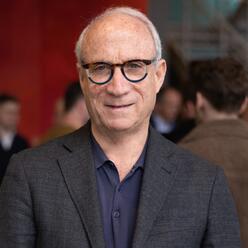How might a pharmaceutical company retool its social responsibility strategy amid industry criticisms of runaway drug prices and foot-dragging in developing countries?
How might a pharmaceutical company retool its social responsibility strategy amid industry criticisms of runaway drug prices and foot-dragging in developing countries?
THE JEROME CHAZEN CASE SERIES
 In 2003, Eli Lilly and Company faced a threat to its philanthropic reputation on several fronts. Consumers were concerned about escalating drug prices, and the pharmaceutical industry was criticized for being slow to provide HIV/AIDS drugs in developing countries. Eli Lilly Chief Executive Sidney Taurel sought to develop a corporate social responsibility strategy that would set his company apart from the industry. Options included expanding the company's diabetes program or broadening support for treatment of multi-drug-resistant tuberculosis. In this case students study the pharmaceutical industry's sales, R&D and philanthropic giving, as well as regional demographics and their leading causes of death, to create a recommendation for revitalizing Eli Lilly's social responsibility strategy.
In 2003, Eli Lilly and Company faced a threat to its philanthropic reputation on several fronts. Consumers were concerned about escalating drug prices, and the pharmaceutical industry was criticized for being slow to provide HIV/AIDS drugs in developing countries. Eli Lilly Chief Executive Sidney Taurel sought to develop a corporate social responsibility strategy that would set his company apart from the industry. Options included expanding the company's diabetes program or broadening support for treatment of multi-drug-resistant tuberculosis. In this case students study the pharmaceutical industry's sales, R&D and philanthropic giving, as well as regional demographics and their leading causes of death, to create a recommendation for revitalizing Eli Lilly's social responsibility strategy.
 In 2003, Eli Lilly and Company faced a threat to its philanthropic reputation on several fronts. Consumers were concerned about escalating drug prices, and the pharmaceutical industry was criticized for being slow to provide HIV/AIDS drugs in developing countries. Eli Lilly Chief Executive Sidney Taurel sought to develop a corporate social responsibility strategy that would set his company apart from the industry. Options included expanding the company's diabetes program or broadening support for treatment of multi-drug-resistant tuberculosis. In this case students study the pharmaceutical industry's sales, R&D and philanthropic giving, as well as regional demographics and their leading causes of death, to create a recommendation for revitalizing Eli Lilly's social responsibility strategy.
In 2003, Eli Lilly and Company faced a threat to its philanthropic reputation on several fronts. Consumers were concerned about escalating drug prices, and the pharmaceutical industry was criticized for being slow to provide HIV/AIDS drugs in developing countries. Eli Lilly Chief Executive Sidney Taurel sought to develop a corporate social responsibility strategy that would set his company apart from the industry. Options included expanding the company's diabetes program or broadening support for treatment of multi-drug-resistant tuberculosis. In this case students study the pharmaceutical industry's sales, R&D and philanthropic giving, as well as regional demographics and their leading causes of death, to create a recommendation for revitalizing Eli Lilly's social responsibility strategy.
